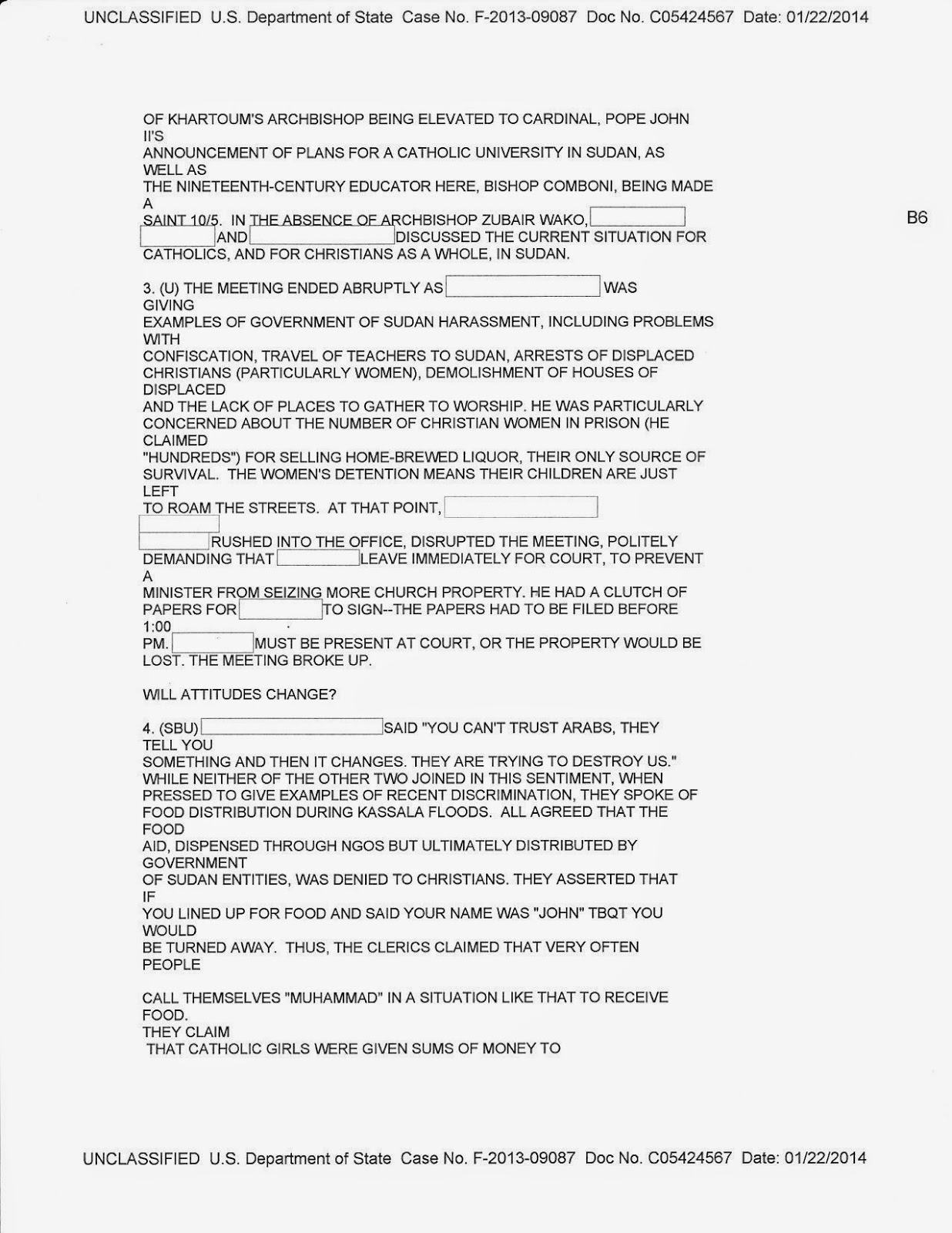Just back from
visiting Juba. Juba is the furthest south of Sudan’s Nile cities,
about 800 miles as the bird flies and a good distance further as the
river flows. Juba is also the edge of the north’s furthest reach.
Juba itself is less than 100 years old but each empire that has tried
to rule Sudan has put an outpost in the vicinity. The Turks, Arabs
and the British have done it. The Juba area sits at the point where
the White Nile enters the plains after dropping down from the
Mountains of the Moon (the Rwenzori Mountains in Uganda). The empires have all wanted to control it in
order to control the gateway south and north. But the outposts have
always been too far from the north and too difficult to defend. Juba
sits well south of the Sud, the great swamp that chokes the White
Nile and has always presented an almost impassable barrier to going
up river. The border between Arab Sudan and African Sudan is another
300 miles north of Juba but the government and the SPLM have fought
most bitterly over this one city and the province – Equatoria –
of which it is the capital.
Juba
is closer to Uganda and the Congo than to Khartoum. It took our US
Air Force C-12 just under three hours to get there. It is dry season
but it was clouded most of the time. Rain sprinkled us as we were
touring the military hospital. Juba is not really a city but a very
humble and over-crowded town. The government has 12,000 troops to
control the town and a bit of the surrounding territory. (They seem
in no hurry to leave.) About 500,000 people live in
government-controlled territory. Most of the 2 million southerners
who live in the refugee camps of Khartoum come from Juba. (My cook
and houseboy come from there.) Even though with a ceasefire, the
countryside – fields for crops, roads – is heavily mined and
unusable. In an area that could feed itself, most everything –
food and fuel – has to come from Khartoum. The barges can only use
the river during the dry season and the town has electricity only for
the 3-4 months a year that fuel can reach it by barge. Food costs
four times the monthly wage; that means those with jobs can feed
themselves from their pay only one week out of the four. Then they
“make do.”
The
SPLM repeatedly attacked Juba because they wanted to make it their
capital. But the government used all of its resources to hold it.
They have several towns in the south but the SPLM controls the
countryside. This stalemate has made both sides willing to try a
peace agreement. The people of Juba have been so brutalized by the
war and by oppression by the Arabs that they don’t believe in peace
even now. I met with the auxiliary bishops of the Catholic and
Episcopal Churches. They have carried alone the weight of helping
their faithful survival. One told me that every day that people
survived made them thankful but they could never tell about tomorrow.
Imagine waking up facing the job of finding work, shelter, the next
meal while also being afraid that if you complained or said or did
anything that the security people didn’t like that you would
disappear and never be found. And the next day, if you survived the
night, the same thing all over again for 15 years. The Catholic
Bishop spoke of the people having been traumatized and I could see in
his eyes what it had done to him. They were glad that the US had not
forgotten them. I brought my USAID person with me and we listened to
them tell us that they needed help. The people of the US know
nothing, nothing about all of these places where other people have
nothing, not even hope.
Juba
is dusty, dirty – filled with that scourge of mankind, plastic bags
– and very poor. But it also is indisputably Africa. The mud
huts with straw roofs, the chickens, goats and dogs running loose.
The smiling faces, all the children waving and wanting us to take
their pictures. That wish to have their picture taken always makes
me wonder. They’ll almost certainly never see them. It is that
somewhere, somehow they want their lives to be recorded, remembered
by someone outside? I always feel at home in Africa. We stayed
at the USAID compound, now occupied by the International Red Cross.
The ICRC team includes doctors and nurses who run the local hospital.
They work 18-hour days, six days a week. The Sudanese staff won’t
help them because they don’t care about the local people. The Red
Cross people, mostly Europeans, are the most dedicated I’ve ever
met. Rough living in Juba but they all can’t stop what they are
doing.
I
had 15 minutes between meetings – that included with the local army
commander, who gave us dinner – and took a swim [in the USAID pool]. Reminded me of
Harare. In the evening I sat alone by the pool for a bit and smoked
a cigar. I watched the smoke disappear into the night sky and
thought of paradise.





































